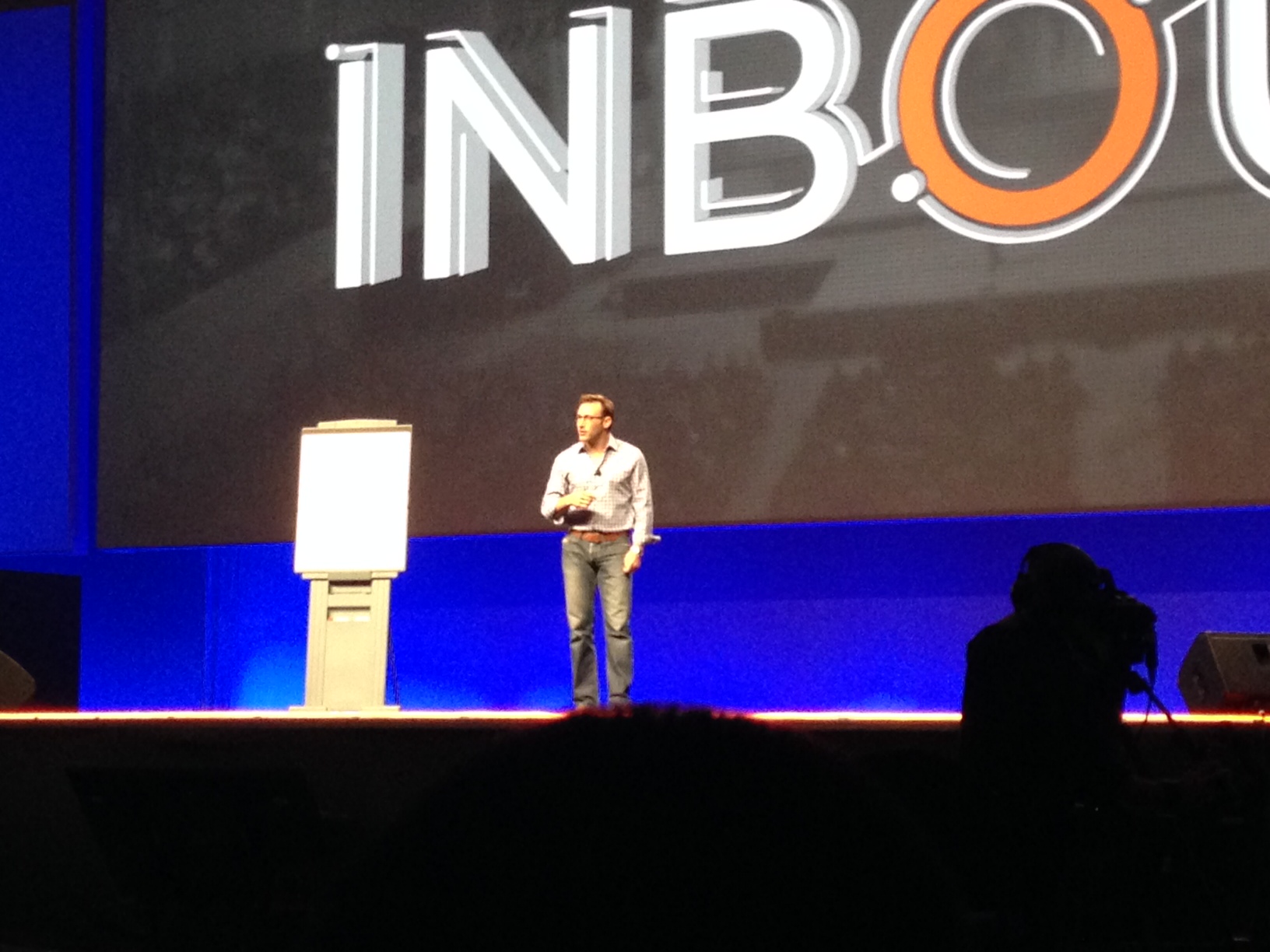
In one of the most viewed TED talks of all time, author Simon Sinek answered the question, "Why start with why."
The man who has best articulated the 21st-century imperative for leaders to paint a vision big enough to move hearts and minds before they can sustainably move sales and profits is back with a new book, "Leaders Eat Last."
This week, Sinek took the main stage at Inbound 2014, the world's largest annual gathering of inbound marketers, to explain how Start With Why leads to the mantra that Leaders Eat Last.
With his first book and speaking around it, Sinek made clear that vision -- and the story that shares that vision -- resonates with those who follow leaders because the story activates biological triggers (dopamine) in our brains that love to achieve goals. We crave the picture of success, the ringing of the bell, the experience of achievement.
In corporate America, though, Sinek says a singular focus on goal achievement is destructive. Like addicts seeking crack, companies and organizations focus solely on the selfish chemicals "that leave you lonely and isolated and vulnerable."
In his latest work, Sinek says great leaders must learn to activate other biological triggers and chemicals. Serotinin, for instance, is activated when people are honored for doing a good job in an organization. "It feels good!" This is why commencements are important when students graduate college -- otherwise diplomas could be emailed as PDFs and that would be enough for us.
Such ceremonies are great for the graduate -- and the parents beaming in the audience -- because "Serotonin reinforces the relationship between the person who makes the sacrifice and the person that the sacrifice benefits."
True leaders get this -- that's why Sinek calls this biological trigger "the leadership chemical."
Leaders earn trust and respect from those they lead because they expect leaders to sacrifice first to save the group. Or as Sinek said a Marine general once told him, "The cost of leadership is self interest."
In poor corporate cultures, leaders fail when they flip that dynamic and put their own interests first. This creates a visceral reaction in those they lead -- and it's negative. Great leaders are willing to sacrifice their self interest for their people. This is what Marine officers do -- literally, they eat last, after their troops, behavior that led to the title of Sinek's latest book.
What great leaders learn is that their willingness to sacrifice creates a shared willingness among those they lead to respond in kind.
Business is not about terms and conditions, Sinek says, it's a biological, human transaction between people. Leaders need to understand how to make what they do human for those they lead and those they hope to work with in business.
Acts of kindness and generosity by leaders release the chemical oxytocin in those they lead, connecting them in a way like a big group hug. Because time and energy given by leaders is a non-redeemable asset, when leaders give of their time and energy to those they lead, Sinek says it earns a greater return for the relationship, the leader and the group than any monetary exchange possibly could.
The best part of this is that leaders being kind and generous biologically prompts those they lead to respond in kind -- and as a reward, those who respond to leaders who give also trigger oxytocin responses in their brains that make them feel good. Biologically, Sinek says, this is why it feels good to give -- it's because it's a scientifically proven, biological response. In healthy organizations, giving by the leaders begets giving by those who lead and everybody feels better.
Unfortunately, Sinek says, far too many organizations and workplaces are unsafe and that triggers another chemical -- cortisol, the flight or fight chemical. And this chemical, while it saved our ancestors from trouble in the wild destroys the effectiveness of organizations. "We're not supposed to have cortisol in our bodies all the time, it's supposed to leave" when danger passes. It creates unhealthy tension, stress, fear of being fired. "No one's getting any work done, they're protecting themselves from the danger." And as a result, "everybody becomes incredibly selfish."
Worse, too much cortisol literally makes people ill. "Our jobs are literally killing us. And it's the responsibility of those leading those organizations." Executives, Sinek says, too often put other priorities -- numbers, customers -- ahead of their people.
Great leaders not only paint the vision and share the why. Sinek says they are willing to make sacrifices for their people when it counts. Leaders "have a responsibility to the people around us and whose faces we know . . . The more we sacrifice for others, the more the human machine will be in balance."
What far too many business executives don't understand is that "Leadership is a daily practice, and like parenting," Sinek says, "it comes at great sacrifice."
Leaders who do this, Sinek will reap the rewards of a culture that delivers results on every biological measure -- not just those that serve selfish interest or protect people from danger.
